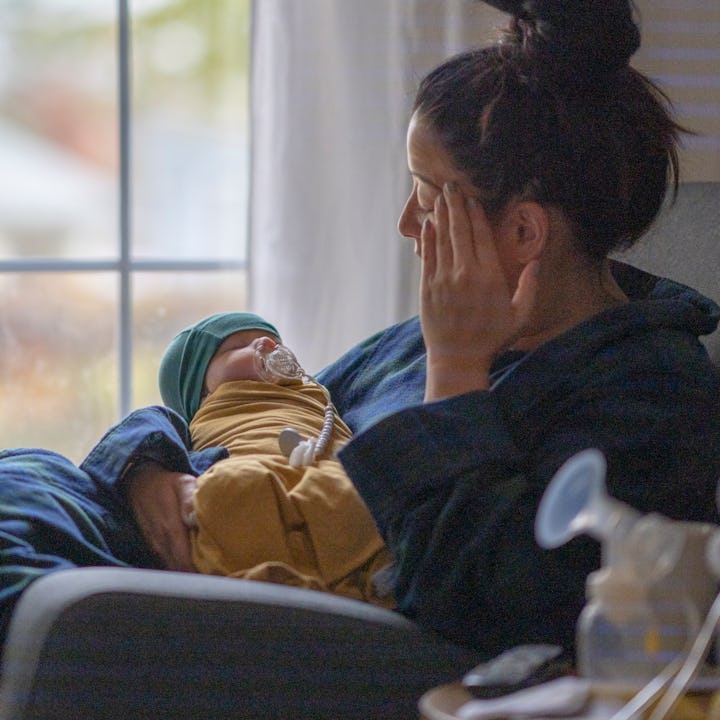Research Shows Unpaid Maternity Leave Financially Devastates Families
A new study found that 74% of women wouldn't have any cash savings left after 8 weeks of unpaid postpartum leave.

A new study confirmed what any parent who’s had to take unpaid family leave knows: it is financially devastating. Those six to eight weeks off, meant to be a time of resting and bonding with a newborn, are often fraught with financial anxiety as bills mount up. And when it comes to how to finance those six to eight weeks in the only industrialized nation without paid maternity leave, many women are forced to deplete their savings, take out loans, or take on extra credit card debt to make up for the lost wages.
Breeze, a disability and critical illness insurance company, surveyed 1,001 employed women between the ages of 18 and 44 about how unpaid family leave would impact them financially. Over half, 54%, said they would “consider a personal loan to cover unpaid maternity leave expenses,” while 49% said they would think about “drawing from their retirement funds.”
When asked, “If you had to go on unpaid maternity leave for 8 weeks, do you have sufficient cash savings to afford this time,” 70% said “no,” with 74% saying that that would not have any cash savings left after 8 weeks of unpaid maternity leave.
Ready to get more angry? When asked how unpaid leave would affect them on a scale from 1 (no financial setback) to 10 (major, possibly permanent financial setback), the average answer was 7. The plurality (16%) answered 10.
While upsetting, the number of women who answered they would be in financial dire straits isn’t surprising. According to data from the 2019 Survey of Consumer Finances (SCF) by the US Federal Reserve, the median savings of Americans was $5,300. This was also before the pandemic, which forced many families to deplete savings just to stay afloat.
The survey then goes on to discuss short-term disability insurance for pregnancy, but the fact that this type of niche, privatized insurance exists in the first place is indicative of the lack of social safety nets for new parents, particularly new mothers.
And with states rapidly stripping away abortion rights in the wake of the removal of Roe v. Wade, more people are going to be forced to carry to term and take on these financial burdens that can have lifelong repercussions.
This article was originally published on